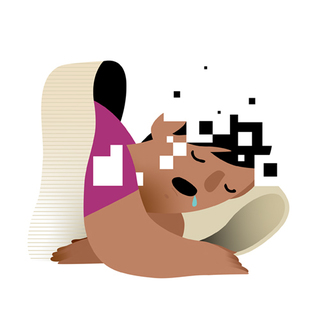
Alex Eben Meyer
Alzheimer’s disease affects over seven million Americans and sparks fear in millions more. That fear thrives in ignorance: We don’t understand how Alzheimer’s works or have effective ways to treat it.
While some researchers study the biology of Alzheimer’s disease to develop better drugs, others, like Gawon Cho, a postdoctoral associate in internal medicine at Yale School of Medicine, are looking for modifiable risk factors to give patients a chance of keeping dementia at bay.
In a paper published in the Journal of Clinical Sleep Medicine, Cho and senior author Brienne Miner ’16MHS, an assistant professor at Yale, document a link between insufficient quality sleep in middle age and, years later, reduced size of regions of the brain known to atrophy in early Alzheimer’s disease. “We knew that short sleep duration could be a risk factor for Alzheimer’s disease,” Cho says, “but we wanted to focus on the structure of sleep by looking at how much of their sleep they spent in different stages.”
Cho found that spending less time in dreaming and slow-wave deep sleep correlates with smaller brain size about 15 years later. The inferior parietal region, involved in processing and integrating sensory information, was most likely to have diminished volume.
Participants’ brain volume was measured using MRI imaging and compared to the results of a previous sleep study. (Due to limits in available data sets, the research considered only white adults.)
Like so much Alzheimer’s research, the study can’t prove causality. But it does point to a risk factor that we already know we should address: Inadequate sleep increases the risk of cardiovascular disease and obesity, and about two-thirds of American adults self-report insufficient sleep. “A person could be more cognizant of their own sleep hygiene, such as phone use at night,” Cho says. “You are also more likely to get deeper sleep if you exercise vigorously during the day and try to keep a regular sleep schedule.” In work funded by the Alzheimer’s Association, Cho will explore whether the sleep driven waste-removal in the brain ties poor sleep to Alzheimer’s risk.
 loading
loading